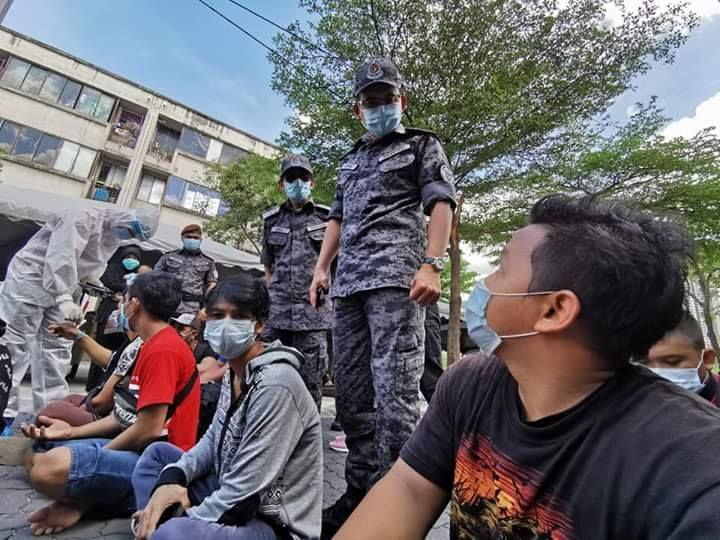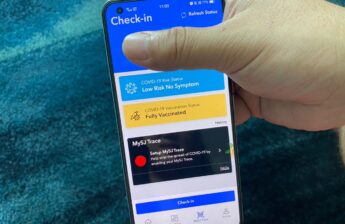KUALA LUMPUR, June 5 — An authoritarian approach towards foreign workers is not effective in an infectious disease outbreak like Covid-19 as it forces many underground, a medical expert said.
Prof Dr Adeeba Kamarulzaman — dean of the Faculty of Medicine at University Malaya and an infectious diseases specialist — told a forum hosted by CSO Platform for Reform Tuesday that authorities should instead collaborate with migrant communities and non-government organisations (NGOs), even as Malaysia is facing a new challenge of Covid-19 clusters breaking out among foreigners.
“In terms of migrants, documented or undocumented, again learning from the HIV epidemic, it is best to work with the communities themselves and the NGOs when it comes to the marginalised communities because there’s trust and you’ve got people who speak the same language.
“Not just in terms of linguistics, but in terms of understanding the needs, the fears, and in this sort of situation, you can’t take the strong-arm Big Brother approach. Because as you can see, people tend to go underground when you do that. It kind of defeats the purpose of the public health response,” Dr Adeeba, an HIV expert, told the forum.
Former president of the Federation of Private Medical Practitioners Associations, Malaysia and of the Malaysian Medical Association, Dr Milton Lum, has also pointed out that social stigma and discrimination against certain migrant workers and ethnic communities may drive these populations into hiding, despite the Ministry of Health (MOH) providing them access to Covid-19 testing.
This occurrence poses a health risk not only to themselves, but also the risk of spreading the coronavirus to others, including Malaysians, in the community.
Senior Defence Minister Ismail Sabri Yaakob, however, insisted last week that the authorities would continue arresting undocumented migrant workers, claiming that such foreigners could infect Malaysians with Covid-19 if they were allowed to move around freely.
The Ministry of Health (MOH) yesterday reported 270 Covid-19 cases at Bukit Jalil immigration detention depot, where nearly 40 per cent or 608 of the screened detainees there have tested positive for the coronavirus.
MOH had also identified new Covid-19 clusters in the Semenyih immigration detention centre on May 23, followed by the Sepang immigration detention centre the next day.
Consider Decarcerating Overcrowded Prisons
Dr Adeeba also raised concerns with congested prisons across the country amid the Covid-19 outbreak, even as a former Sungai Buloh Prison inmate tested positive for the coronavirus.
“My concern about infection is the prison in particular because we have projects in Kajang Prison and just we all know prisons are overcrowded and it’s very difficult to practice physical distancing and hygiene, et cetera.
“We have been calling for not putting more people into prisons, especially for non-violent offenses, to delay sentencing, and even to decarcerate. Many, many countries around the world have released prisoners who are non-violent offenders, either with those with very short sentences or those who have been in prisons for a very, very long time and can be released.
“Those details can of course be worked up but we need to seriously think about reducing the overcrowding because it is now at 125 per cent or more across our prisons,” said Dr Adeeba.
A number of medical and anti-detention groups in a joint statement released earlier last month shared the same worries as Dr Adeeba, and pointed out that detention centres are currently at 121 per cent to 200 per cent overcapacity without fully functional health services, and that it is “working against Malaysia’s national Covid-19 health strategy”.
They also called for early release of non-violent offenders and noted that over 35 countries, including the United Kingdom, the United States, Saudi Arabia, and Indonesia have released detainees early.
MOH announced Monday that 1,500 individuals, including inmates and employees at Sungai Buloh Prison, would be screened for Covid-19 after a former inmate tested positive for the virus after being transferred to the Semenyih immigration detention centre.








